How do you know if your kid is ready for kindergarten? Does your child need a Kindergarten Readiness Assessment? Starting kindergarten is a REALLY BIG milestone in a child’s life. Hey, in mom’s life, too, right? They still seem so little, but you know your tiny guy is ready for greater things. Well, you think so anyway…but are you sure? How are you supposed to know? And are YOU ready?
What’s a kid supposed to know to be ready for kindergarten?
Well, actually, quite a lot. But don’t worry, she probably has already learned most of it organically on her own over the past 5 years. Children are born learners! They come into the world ready to acquire new skills. Little children learn so fluidly and naturally, that what your child really DOES know may shock you when you stop to really think about it. It’s pretty amazing to consider all that your child has learned since birth!
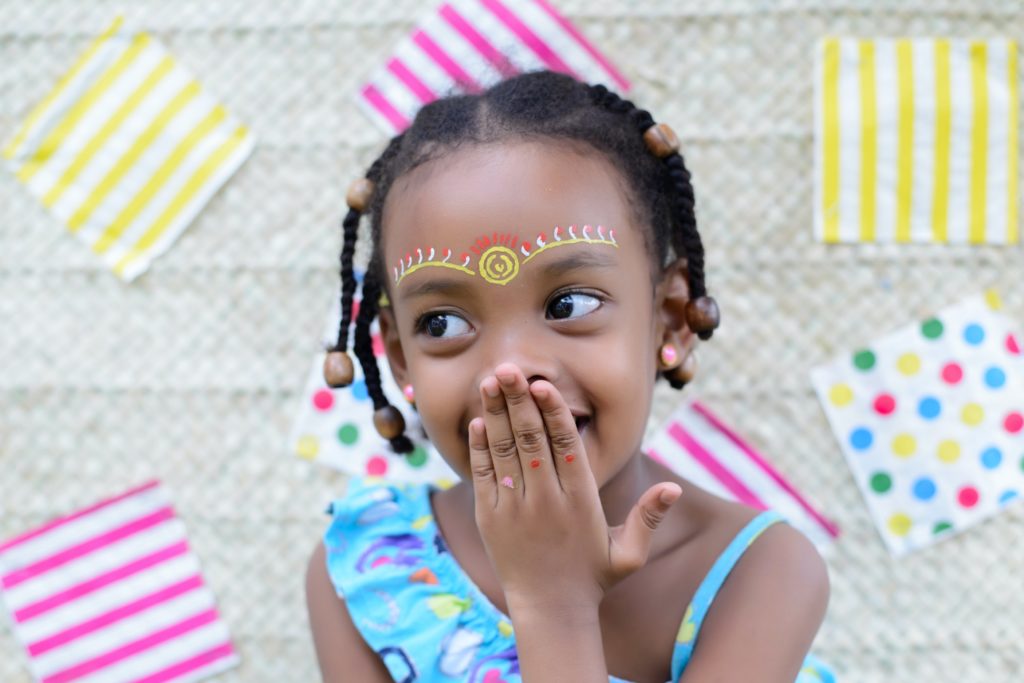
Here’s a breakdown of what kids need to know before stepping into a kindergarten classroom:
Kindergarten Readiness Checklist
Physical Development
Gross Motor Skills
- Pedals a tricycle or bike with training wheels
- Hops on one foot
- Can carry a bowl or plate
- Swings
- Jumps, gallops, and jogs
- Attempts to catch or kick a ball
- Can participate in group games or songs (like Hokey Pokey)
- Attempts to keep rhythm
- Covers coughs & sneezes
- Knows how & when to wash hands
Fine Motor Skills
- Can shape playdough or clay
- Completes puzzles
- Can zip, button, and snap (maybe with help!)
- Strings beads
- Uses a fork and spoon
- Cuts with scissors
- Knows how to use glue
- Attempts to buckle seat belt
- Draws “egg” people
- Colors
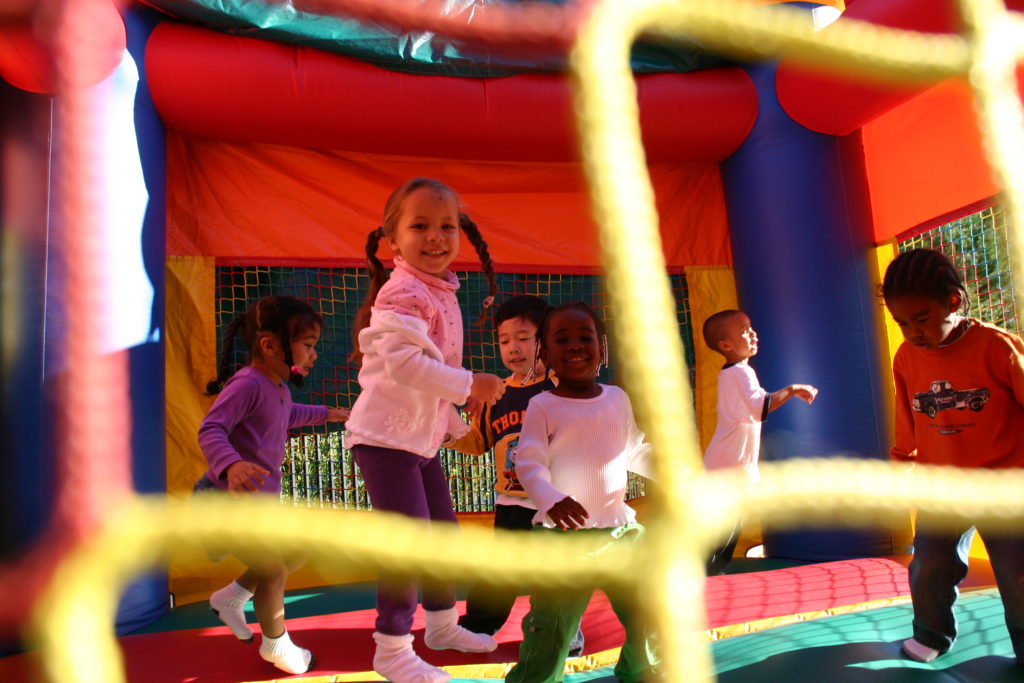
Social Skills
- Knows how to share
- Knows how to be a friend
- Uses please and thank-you
- Answers questions when asked
- Respects personal boundaries
- Can interact within a group and seeks out interaction with others
- Knows own name, age, gender
- Can say home address & phone number
- Knows parents’ names
- Shows self-awareness (can express needs, state likes/dislikes, “I’m good at…”)
- Is able to follow a 2 or 3 step instruction (like, “Please take your dish to the sink and then throw away your napkin.”)
- Tries to solve problems on own
- Can follow rules and routines (with occasional reminders!)
- Takes care of belongings
- Respects authority & tries to behave well (most of the time!)
- Uses words to express feelings and emotions
- Can focus on an engaging task for up to 20 minutes
- Uses verbal and non-verbal communication
- Speaks clearly enough that a stranger can understand
READ: Top 10 Social Emotional Picture Books for Kids
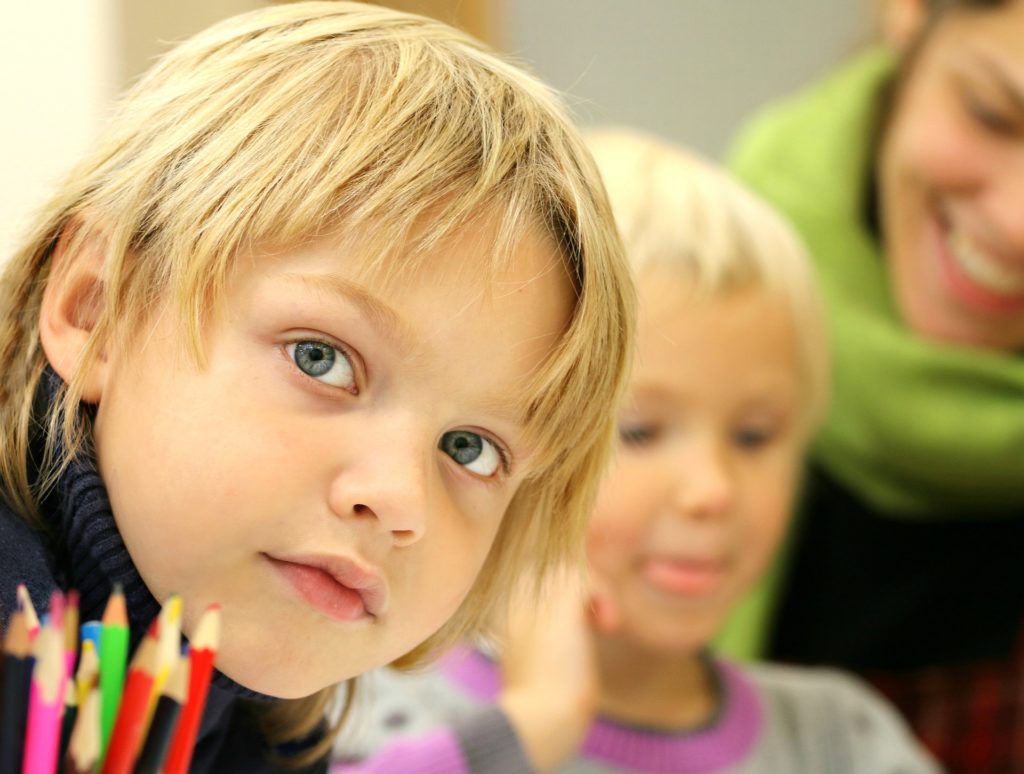
Academic Skills
Language & Literacy
- Understands 3,000-4,000 words
- Uses a large vocabulary and complex sentences: can tell a simple narrative, answer questions, respond to others, describe objects, communicate feelings, needs, wants
- Participates in back-and-forth conversation
- Knows text has meaning
- Enjoys being read to & can tell back the story
- Recognizes rhyming words
- Can clap syllables
- Names at least 20 letters
- Knows at least 20 letter sounds
- Knows print direction (that we read top to bottom and left to right)
- Holds a book correctly (not upside down)
Writing
- Draws
- Can write first name
- Attempts to copy letters
- Tries to scribble or write words (maybe strings of random letters)
- Attempts to write left to right on a straight horizontal line
Math
- Can recite numbers (count) up to 30
- Can touch and count 10 items accurately
- Uses ordinal numbers (1st, 2nd, 3rd, 4th, and 5th) and sequence words like next and last
- Can compare less, more, and equal
- Recognizes numerals 0-9
- Can add & subtract verbally (like in the 5 Little Monkeys poem)
- Can sort into groups
- Names common shapes
- Can create patterns
- Knows location words (like over, under, around, beside, between, etc.)
- Can compare length (“Look, Mom! Your shoe is longer than mine!”)
- Can compare capacity (“My little cup doesn’t hold as much as daddy’s big cup.”)
- Can compare weight (“I weigh more than the baby!”)
Science & Social Studies
- Understands basic of time like yesterday, today, tomorrow AND can use past, present, and future tenses in speaking
- Can describe things by color, size, shape
- Understands seasons & the calendar
- Can tell about family traditions and holidays
- Sings familiar songs
- Shows interest in the world around him

Is there an Academic Kindergarten Readiness Assessment I can give at Home?
Yes! Actually, there are many! Your local school district may have a formal assessment or teacher created assessments they may administer before the first day of school or in the opening weeks of the school year. But, thankfully, there are also informal assessments parents can give to their kids to evaluate their skills.
You want to know what he has mastered and what he’s lacking, right? This assessment is a simple, digital evaluation of the academic skills. It only takes about 10 minutes, and all you need is a tablet or computer screen but it will give you a really good indication of your child’s strengths and weaknesses.
The Kindergarten Readiness Assessment covers:
Letters & Sounds (Phonemic Awareness)
- Letter sounds
- Letter recognition (uppercase & lowercase)
- Sings/ recites ABCs
- Reads names
- Writes own name
Pre-reading Skills
- Holds book correctly
- Shows cover & back
- Points to title & illustration
- Points to text
- Tracks text
- Tracks top to bottom
- Knows to turn page
Numbers & Calendar
- Rote counting
- Numeral identification
- Matching quantity to numeral
- Patterns
- Days of the Week
- Months of the Year
Colors, Shapes, & Sorting
- Shapes
- Colors
- Position words
- Sorting
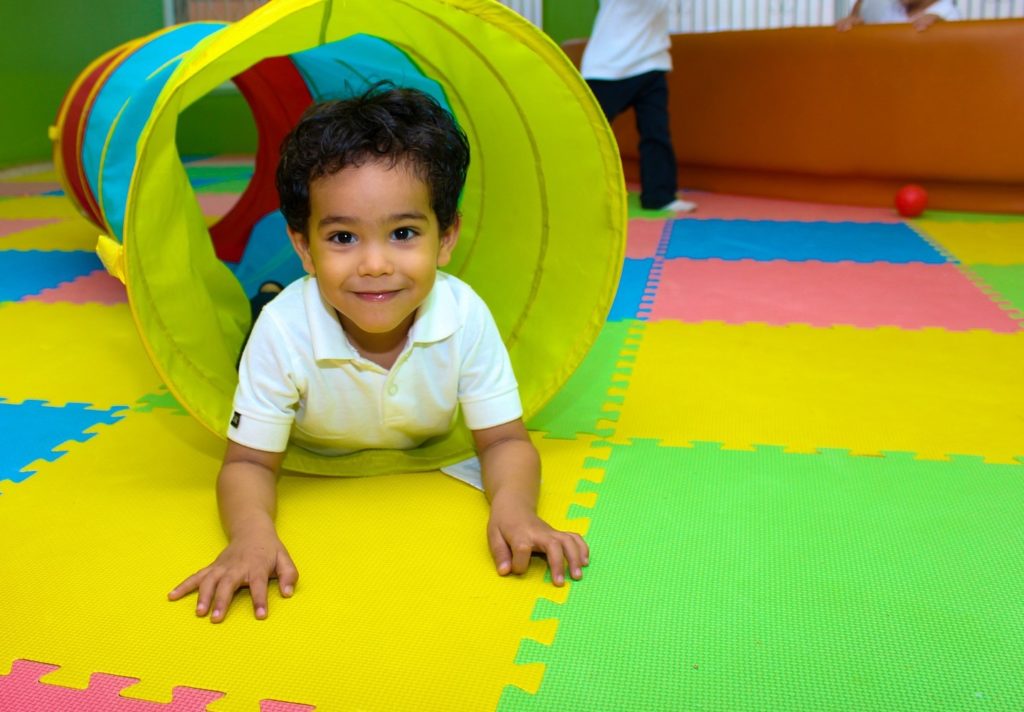
What if my child isn’t ready or seems behind?
If your child is behind on just a few items on the checklist, then it’s no big deal! Since kindergarten is just the beginning of a lifetime of learning, your little one has plenty of time to catch up! Make a list of your child’s growth areas and spend 10-20 minutes a day targeting only two or three areas. She’ll probably catch up in no time!
For example, if your son has trouble counting to 30 or recognizing numerals, spend just 10 minutes a day singing counting songs like this one or doing exercises while counting like here and make it a fun task to mark the days on the calendar and count the days of the month each morning when you wake up!
If you observe that your child seems unable to demonstrate proficiency or even attempt a large portion of the kindergarten readiness assessment or checklist, then you may want to consider asking for others to more formally evaluate your little one. The best place to start is with a visit to your child’s pediatrician. From there, you may want to consider speech therapy or play therapy. Some parents explore the option of an additional year at home or homeschooling pre-k before sending their child to kindergarten.
In the meanwhile, there is SO much you can do at home to help your child grow academically, socially, and physically!
READ: Phonics in PreK and Kindergarten
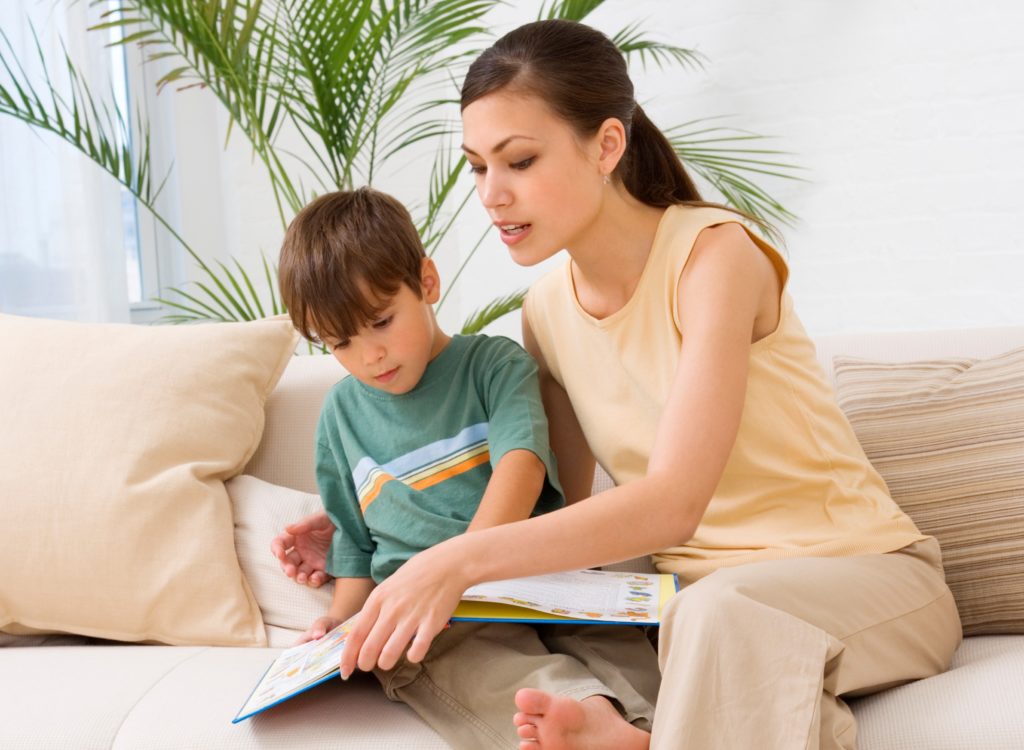
Hands down the two BEST things you can do is READ to your child daily and set up opportunities to PLAY!
To Bolster Kindergarten Readiness
- Read aloud great books
- Pretend play (try these Pretend Play activities here)
- Outside play time
- Cooking in the kitchen
- Read & recite nursery rhymes
- Writing or art time with glue, scissors, crayons, paint, pencils
- Trips to the grocery store, the zoo, the museums, etc.
- Sing along to kids music
- Go to the library
- Engage in great back-and-forth conversation
- Have play dates with friends & grandparents
- Play games and do puzzles
- Do 20 minutes a day of focused “academic” instruction (start with a little bit of phonics like this)
Do you notice how frequently the word PLAY was on that list? Children learn by playing and exploring! Besides reading together, the best thing you can do for your child is encourage fun, creative play opportunities that foster language development and social skills that develop strong bodies and minds.
What if my child is ahead?
Kids develop at different rates! You may find your child is ahead in some areas and behind in others. Our goal is a well-rounded child, not just one that knows all the academics.
So, if your little guy is a whiz at all the academic skills but hates getting his fingers messy, try to encourage some gooey finger-painting or mud-pie making! He may need nudging to explore his creative side or to connect with other kids.
Roadmap to Success!
I originally created and used this product in my pre-K classroom to assess at the beginning, middle, and end of the school year as a benchmark to make sure my students were ready for kindergarten. If you’re child is only 3 or 4, it’s a great roadmap to know where you should be headed as you prep for kindergarten readiness.
So, grab your copy of the Kindergarten Readiness & Pre-K Assessment today! It’s a quick, comprehensive yet simple, digital assessment that will provide you with invaluable information for determining your child’s kindergarten readiness!
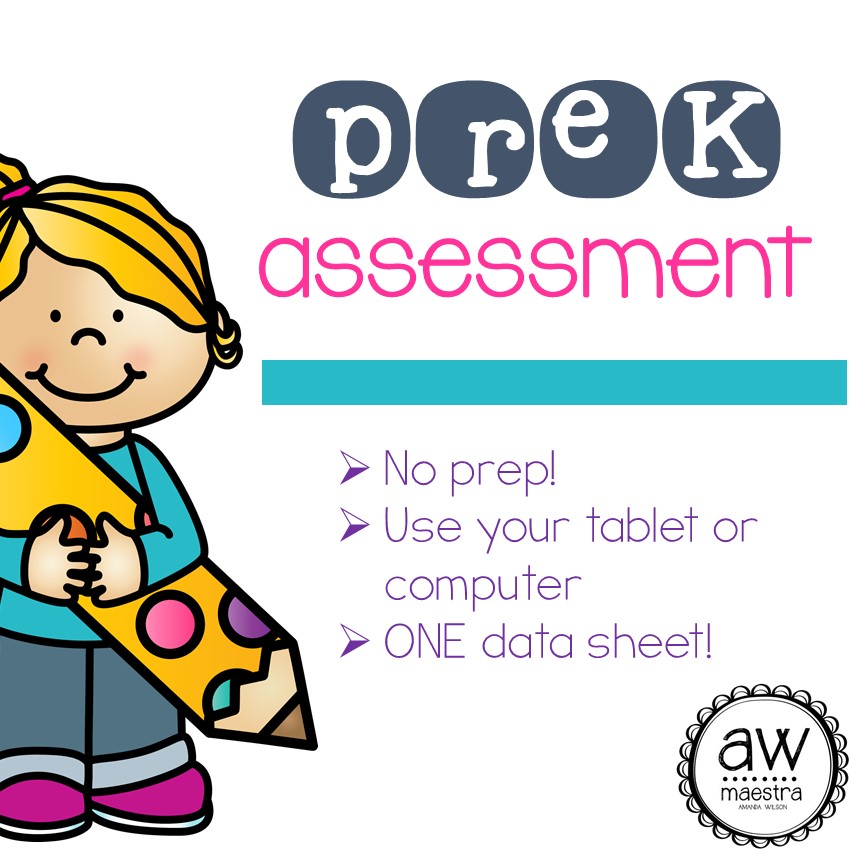
Click here to download Kindergarten Readiness Pre-K Assessment
I’d love to have you join me in your teaching and mothering journey! Let’s stay connected!
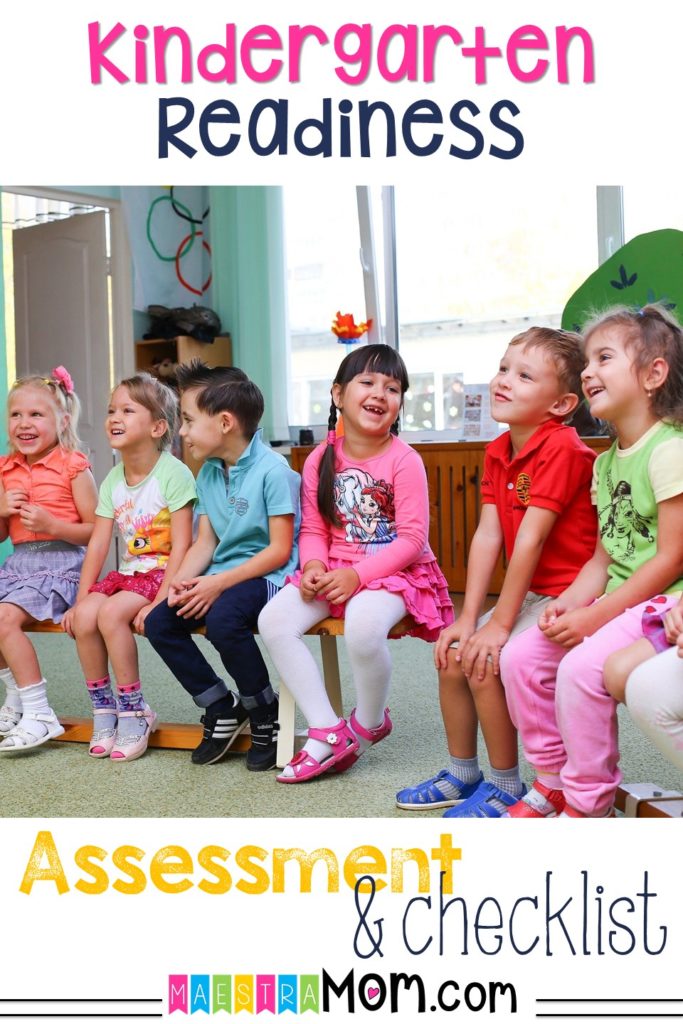


Pingback: Classroom Storage Hack: 1 Simple Trick - Maestra Mom
Pingback: How to Write Engaging Lesson Plans for Preschool - Maestra Mom